👨💻 Fragility, Co-Pilot & Equity Premium
04 July 2021
Welcome back to the Week That Was series highlighting things from the interwebs which are interesting, noteworthy and/or probably worth your time.
Articles📝, Tweet(s)📱, Videos🎥, Charts 📈 all fair game with or without attendant commentary.
🎧🎙️ “Is this working?”
Barreling full-speed ahead isn’t always the key to scale. For Michael Seibel, managing director at Y Combinator and co-founder of Justin.tv and Socialcam, action sometimes needs to take a back seat to asking: “Is this working?” Michael learned early on that by stopping to ask the counterintuitive question, he gained the wisdom – and avoided time lost to big mistakes – that ultimately propelled him forward.
At Y Combinator, he’s helping other founders ask themselves uncomfortable questions. The answers aren’t always obvious, and sometimes they seem downright irrational. But following where they lead, he says, feeds efficiency, confidence, and ambition. That’s why the ability to ask the right questions at the right times of the right people is an essential skill for every entrepreneur.
Here’s the transcript: 📝"Asking the Uncomfortable Question"
🎙️
🔢⚛️ No Math Quantum Mechanics
Fascinating Ars Technica series on quantum mechanics which attempts to explain it without resorting to the mathematics.
Welcome to “The curious observer’s guide to quantum mechanics”–featuring particle/wave duality.
Feynmann famously quipped: “If you think you understand quantum mechanics, you don’t understand quantum mechanics.” so often the idea is to just "shut up and calculate". Yet I thought this was more than a decent attempt at getting an intuitive understanding of an incredibly unintuitive theory - our most accurate physics theory yet.
📝A “no math” (but seven-part) guide to modern quantum mechanics
🤖 Co-Pilot
📰Copilot is built on a new algorithm called OpenAI Codex, a descendant of the language generation AI algorithm GPT-3.
GitHub and OpenAI have launched a technical preview of a new AI tool called Copilot, which lives inside the Visual Studio Code editor and autocompletes code snippets.
Copilot does more than just parrot back code it’s seen before, according to GitHub. It instead analyzes the code you’ve already written and generates new matching code, including specific functions that were previously called. Examples on the project’s website include automatically writing the code to import tweets, draw a scatterplot, or grab a Goodreads rating.
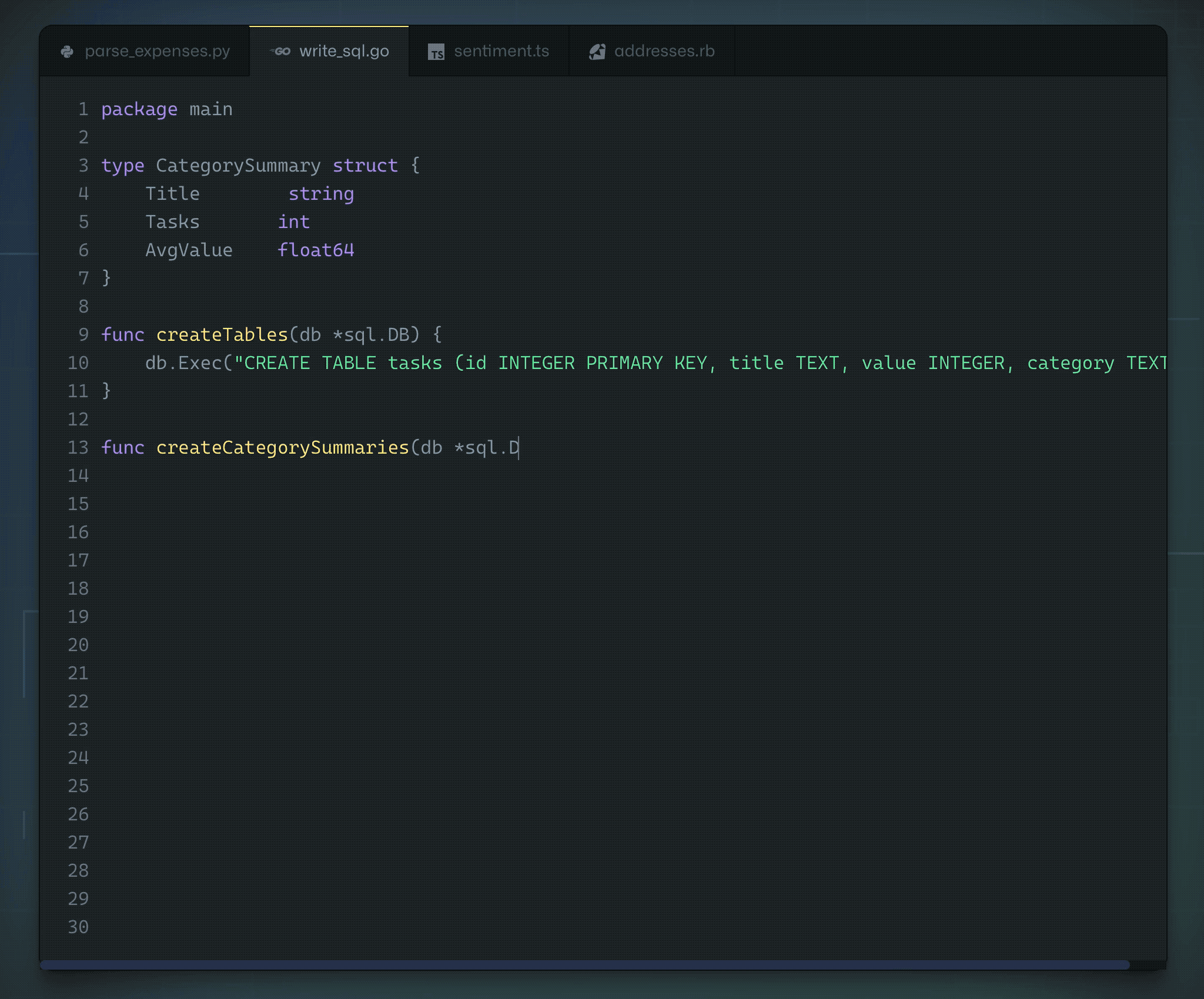
As mentioned on this pages recently, probably a good thing the StackOverFlow guys exited when they did, per Alex
Stackoverflow founders cashed out just in time before the release of GitHub Copilot 😉
— Adesegun Adeyemo (@alexcrownus) July 3, 2021
Mind you, as fascinating and clearly useful as copilot looks like it’ll be, the announcement hasn’;t been universally well-received; particularly with the revelation that the ML algorithms have been trained on terabytes of potentially proprietary code.
github copilot has, by their own admission, been trained on mountains of gpl code, so i'm unclear on how it's not a form of laundering open source code into commercial works. the handwave of "it usually doesn't reproduce exact chunks" is not very satisfying pic.twitter.com/IzqtK2kGGo
— eevee 💨 (@eevee) June 30, 2021
🚀👩🏽🚀 Space Tourism
A team of visual strategists at JPL, known as “The Studio,” created this poster series, titled 🎨“Visions of the Future.”
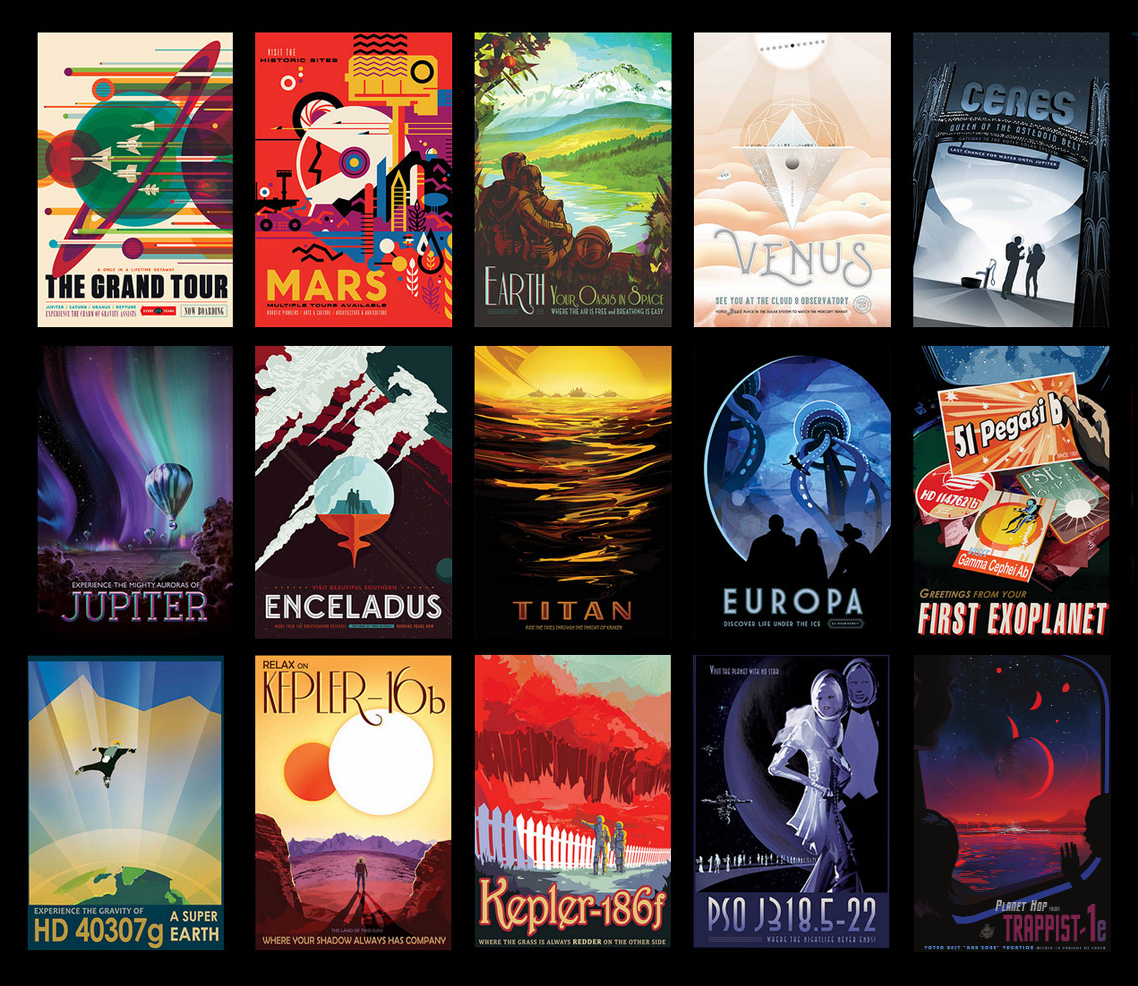
📈 JPM - Guide to Markets
A few snaps from the 📊📚JP Morgan Guide to Markets
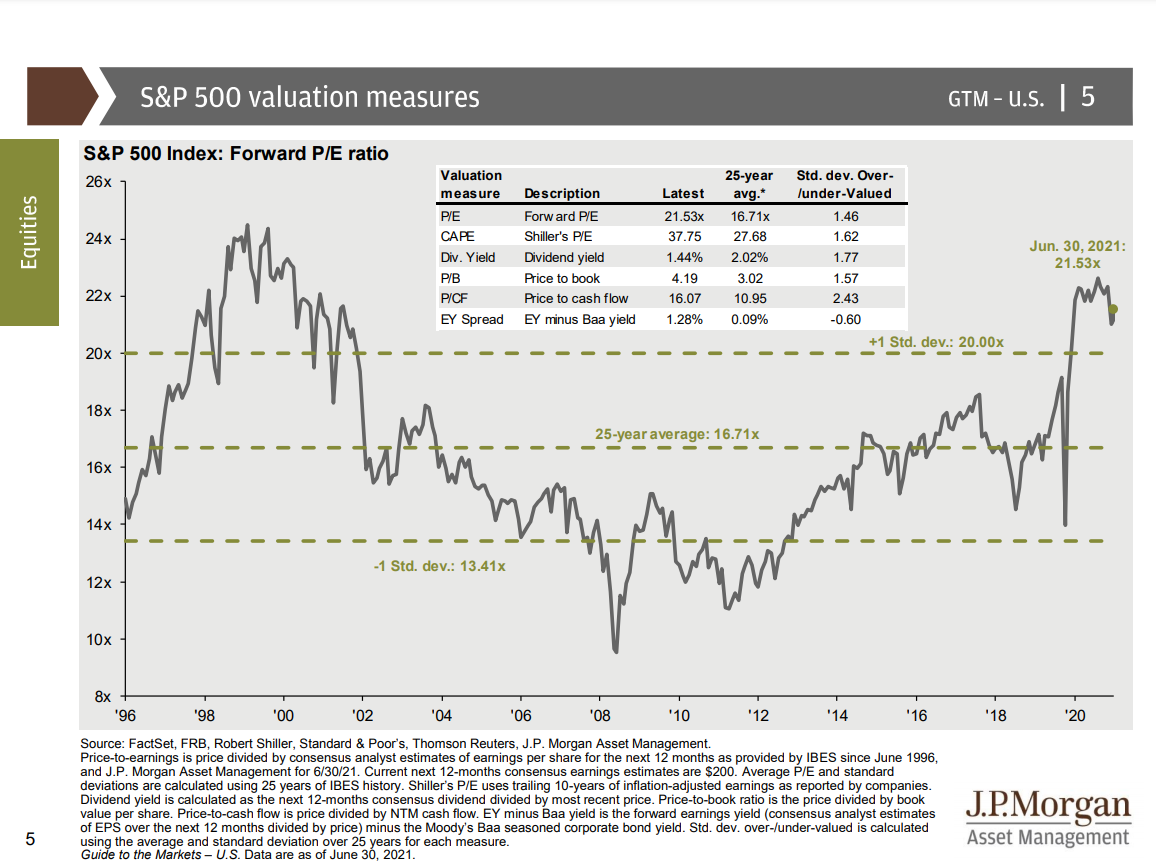
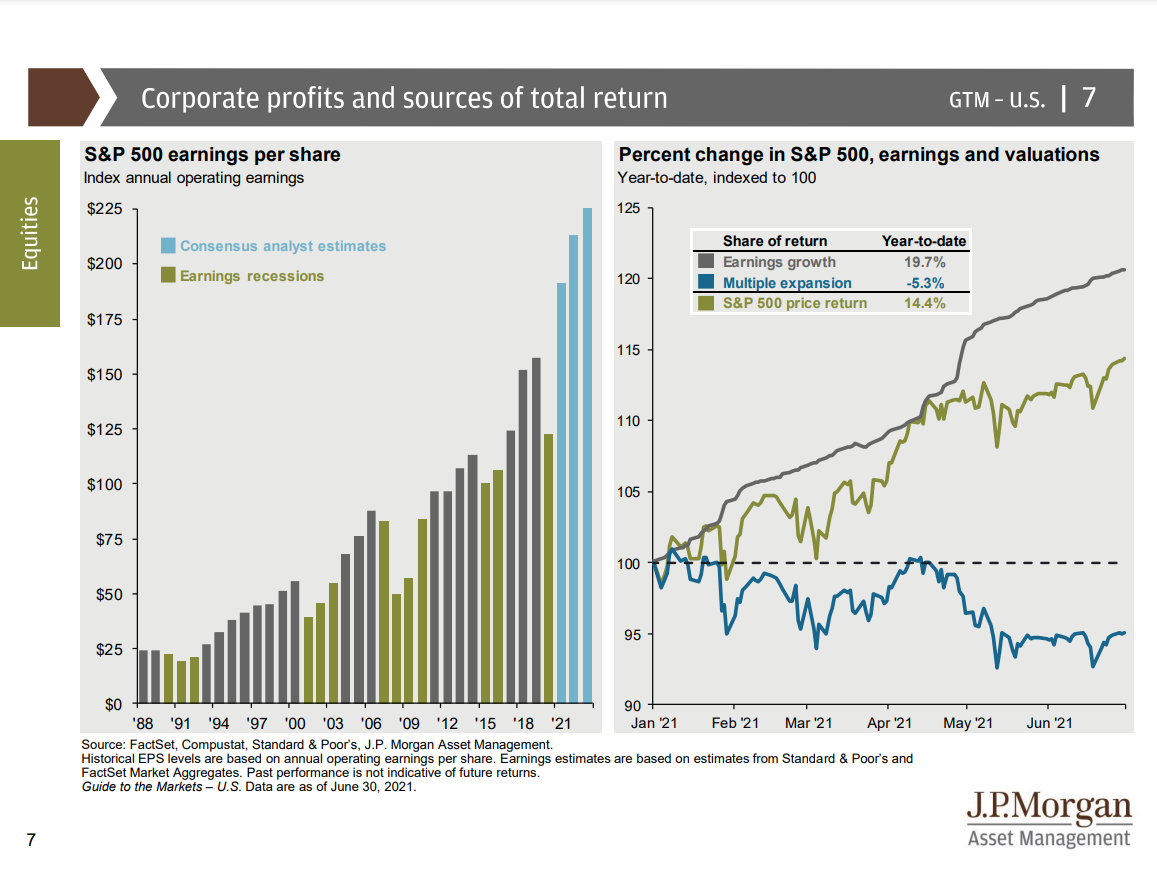
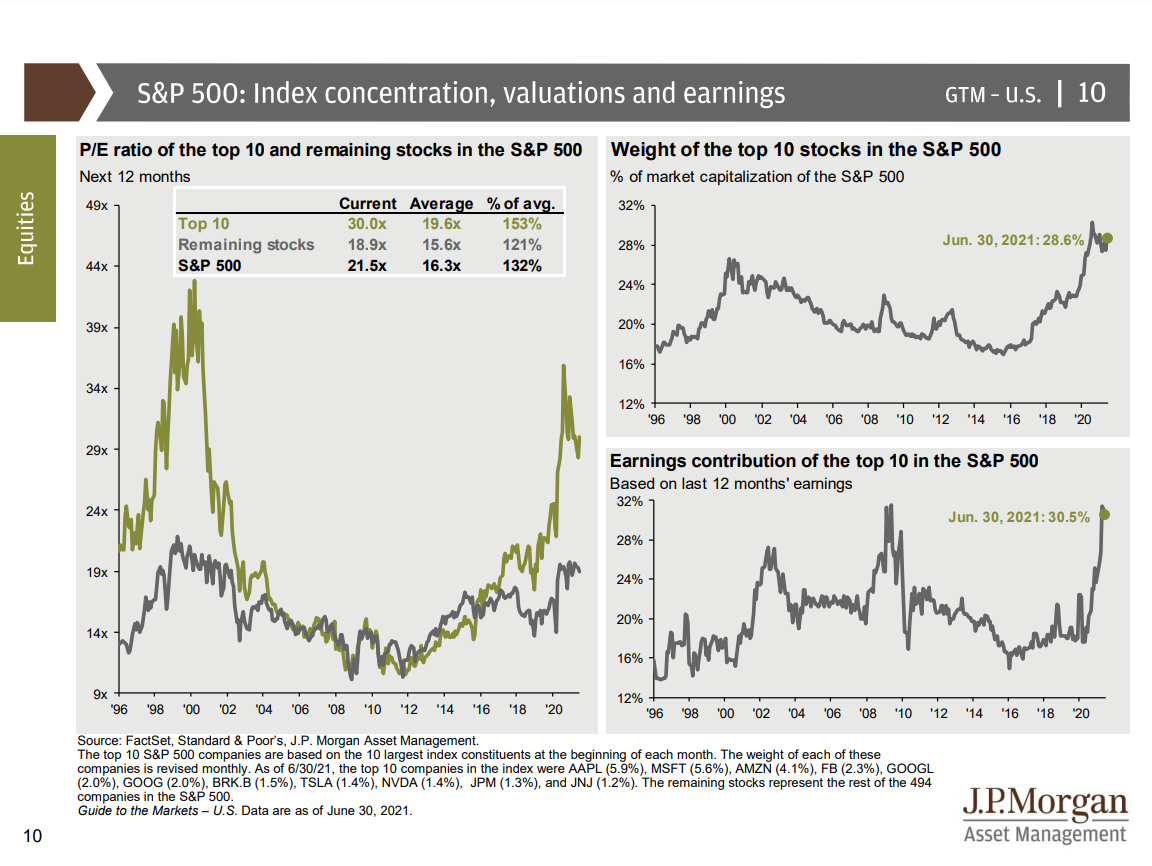
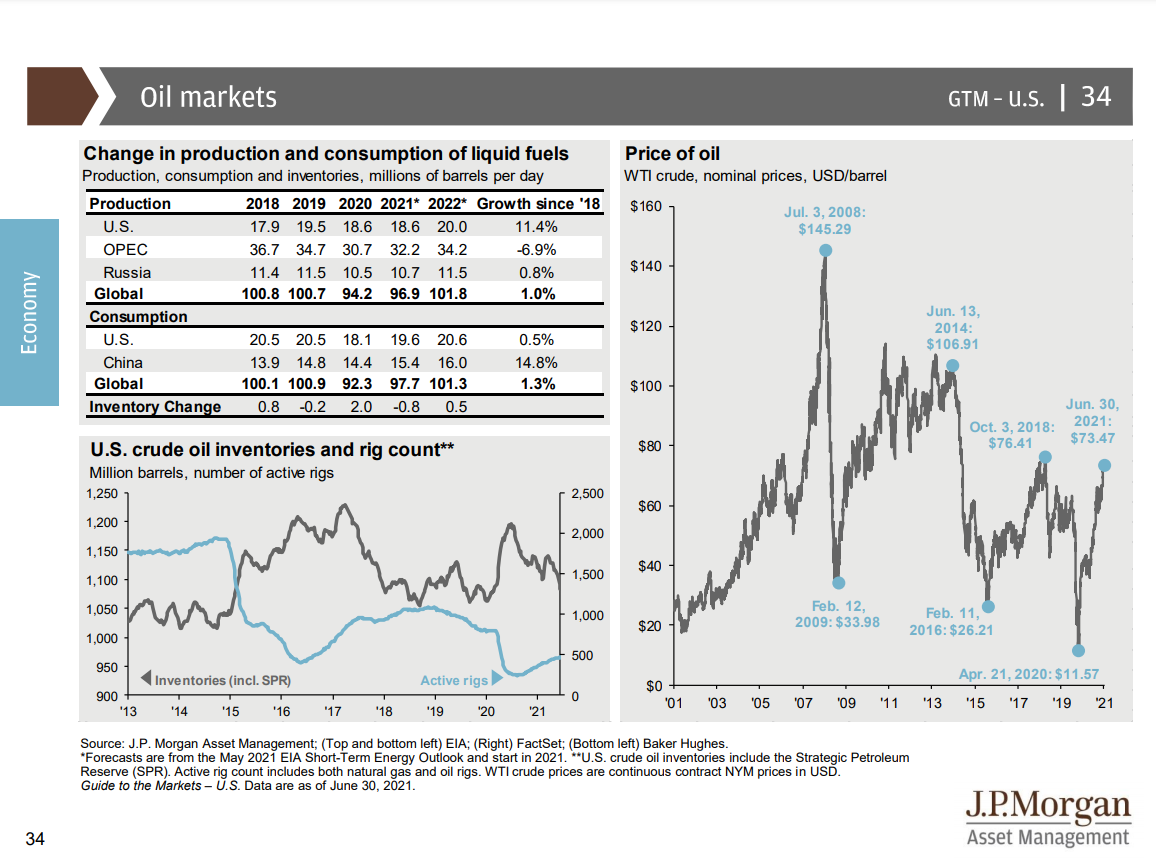
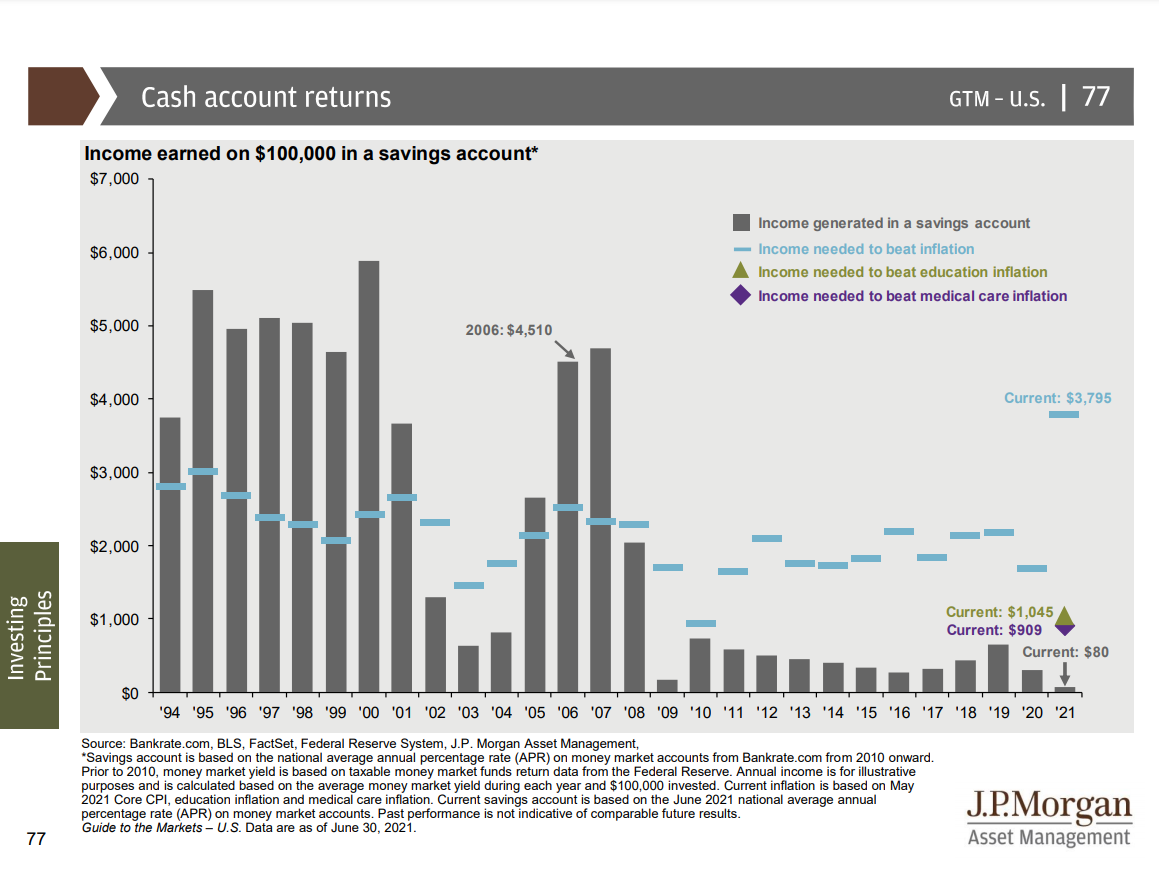
👕💭 Are Beliefs Like Clothes?
Antoine Lavoisier quoted on (the somewhat controversial rationalist) Robin Hanson’s blog
“To the child, Nature gives various means of rectifying any mistakes he may commit respecting the salutary or hurtful qualities of the objects which surround him. On every occasion, his judgments are corrected by experience … In the study and practice of the sciences it is quite different; the false judgments we form neither affect our existence nor our welfare; and we are not forced by any physical necessity to correct them. Imagination, on the contrary, which is ever wandering beyond the bounds of truth, joined to self-love and that self-confidence we are so apt to indulge, prompt us to draw conclusions that are not immediately derived from facts …” - Antoine Lavoisier (1743-1794)
The post how the functional and social aspects of clothing are also analogous to our espoused beliefs.
📚💰 Bitcoin, Currencies, and Fragility
Nassim Taleb’s relationship with cryptocurrency has soured pretty dramatically over the last couple of years - going from writing the foreword to Saifedean Ammous’s The Bitcoin Standard - to becoming a fulltime Roubini-esque bear .
He recently released a takedown piece on the space in a paper he’s published freely called 📚"Bitcoin, Currencies, and Fragility".
INTRODUCTION / ABSTRACT
This discussion applies quantitative finance methods and economic arguments to cryptocurrencies in general and bitcoin in particular — as there are about 10,000 cryptocurrencies, we focus (unless otherwise specified) on the most discussed crypto of those that claim to hew to the original protocol [1] and the one with, by far, the largest market capitalization.
In its current version, in spite of the hype, bitcoin failed to satisfy the notion of “currency without govern-ment” (it proved to not even be a currency at all), can be neither a short nor long term store of value (its expected value is no higher than 0), cannot operate as a reliable inflation hedge, and, worst of all, does not constitute, not even remotely, a safe haven for one’s investments, a shield against government tyranny, or a tail protection vehicle for catastrophic episodes.
Furthermore, bitcoin promoters appear to conflate the success of a payment mechanism (as a decentralized mode of exchange), which so far has failed, with the speculative variations in the price of a zero-sum maxi-mally fragile asset with massive negative externalities. Going through monetary history, we show how a true numeraire must be one of minimum variance with respect to an arbitrary basket of goods and services, how gold and silver lost their inflation hedge status during the Hunt brothers squeeze in the late 1970s and what would be required from a true inflation hedged store of value.
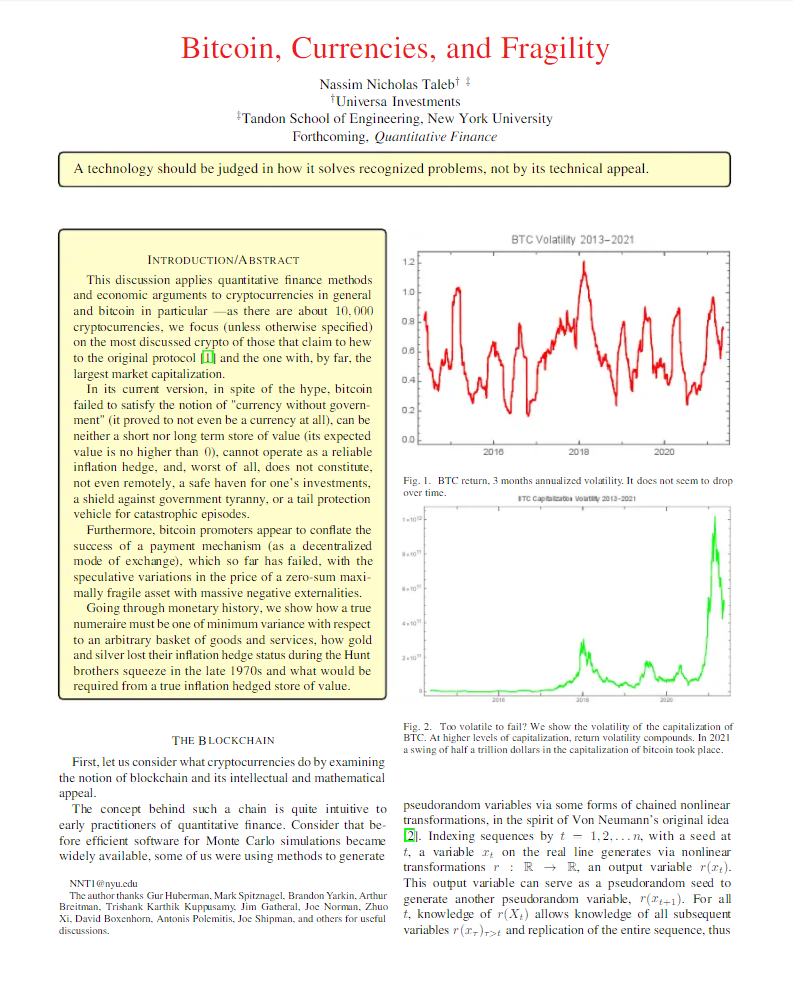
Naturally there are numerous rebuttals available online, 🧵this thread being one.
1/ I just found about @nntaleb's new (draft) paper on bitcoin. It is reveals how easy is to miss the whole point of bitcoin even if you get to understand some of the most complex features of it. https://t.co/Qet2ymYyDd
— fnietom (@fnietom) June 21, 2021
🎨🚴♂️ Tour De Farce

Tour De Farce, Richard Parry, Various Digital, 2021
Inspired by
Crazy crash at Tour De France 2021 🇫🇷
— Nigel D'Souza (@Nigel__DSouza) June 26, 2021
A fan who was holding a message to her grandparents & grinning for the cameras took out most of the peloton with a cardboard sign 🚴♀️ 🚴♂️ 🚴 #TDF2021 pic.twitter.com/OEZmiSjBE9
📉 The Equity Premium
This video essay was inspired by: Mehra, Rajnish; Edward C. Prescott (1985). 📚"The Equity Premium: A Puzzle"
In 1985, economists Rajnish Mehra and Edward Prescott studied the US S&P500 historical data over the last century, and noticed something unusual. They’ve tried using all kinds of economic models to explain the anomaly, but nothing really came to light. Without a logical explanation at that time, the duo coined this mystery as “equity premium puzzle”.
Ever since its discovery, the equity premium puzzle remains one of the most well-known unresolved mysteries in finance. Despite an extensive research effort in academia for decades, economists still cannot find a generally accepted solution that explains the mystery to this day
🖋️ Why You Should Start a Blog Right Now
Alexey Guzey possibly writing with me in mind updated a 2019 article of his earlier this year called 📝“Why You Should Start a Blog Right Now”
I think it’s a great piece and one I’ll be digesting regarding these pages going forward. The table of contents:
- What to write about
- “But nobody will read my blog”
- Writing helps you think better
- “But I don’t have anything original to say and I would be just repeating things said elsewhere on the internet!”
- Why unoriginal writing is useful
- A note on academics and value of unoriginality
- How to start a blog
- “Writing is really hard”
- A few more reasons to write
- One more question to ask yourself about your writing
- Appendix: Why did Peter Thiel write Zero to One?
Some useful counterpoints - and added encouragement - from the Applied Divinity Studies blog, one which I believe Guzey also edits.
The piece auspiciously titled 📝On Being a Loser, or Should you Start a Blog?
👷🔨 How to Work Hard
Paul Graham with a great post on hard work.
Excerpt:
I suspect most people have to learn what work is before they can love it. Hardy wrote eloquently about this in A Mathematician’s Apology:
I do not remember having felt, as a boy, any passion for mathematics, and such notions as I may have had of the career of a mathematician were far from noble. I thought of mathematics in terms of examinations and scholarships: I wanted to beat other boys, and this seemed to be the way in which I could do so most decisively.
He didn’t learn what math was really about till part way through college, when he read Jordan’s Cours d’analyse.
I shall never forget the astonishment with which I read that remarkable work, the first inspiration for so many mathematicians of my generation, and learnt for the first time as I read it what mathematics really meant.
♟️📊 Chess, Precision & Narrow Victories
From this writeup - 🗞️Chess Fans Booed This Year’s World Championship, but Computers Cheered
When we compare the delta between the average centipawn loss for the winning and losing side over time, we find that a much more minor mistake today (i.e., a lower centipawn loss) could prove to be far more decisive to the outcome than a mistake of equal centipawn loss value made in years past:
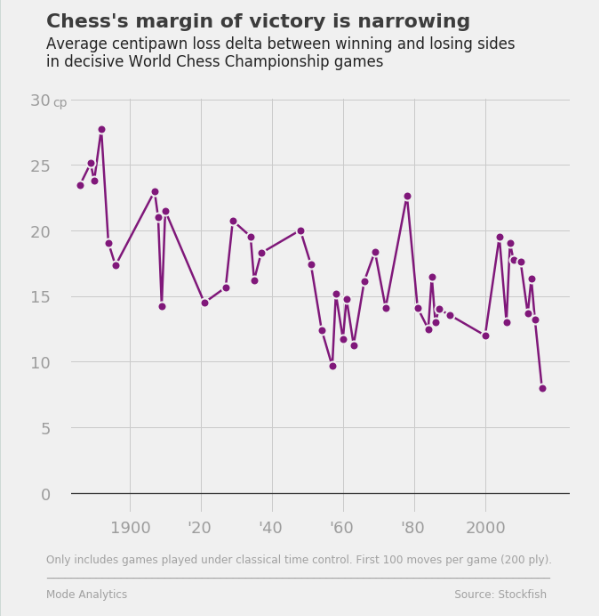
We found that moves played in World Chess Championship games have become remarkably precise, and increasingly so. This trend is not new, but it has accelerated in the last decade. This acceleration is generally chalked up to improvements to chess engines (like the one used to complete this analysis), which allow top players to analyze new ideas and variations much faster during their training.
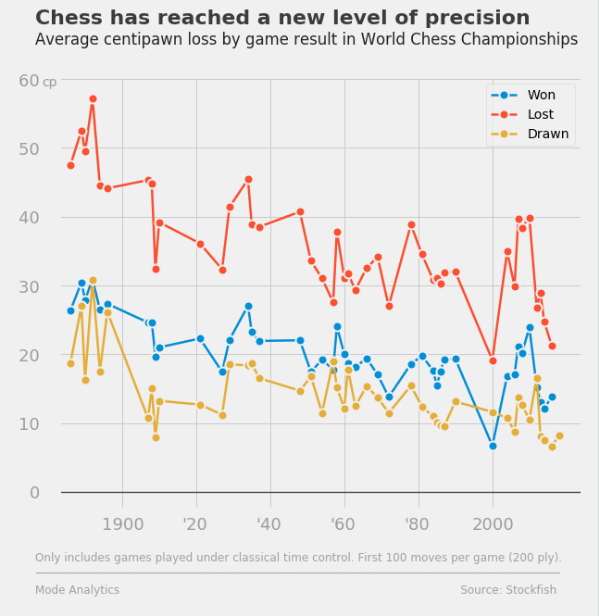
🎨 Yakuza

Yakuza, Seung Eun Kim, digital, 2021
💬 Deep Cuts
“Those who do not want to imitate anything, produce nothing” — Salvador Dali
🧬 One More Thing
Fascinating timelapse of a salamander growing from a single cell, into a complete, complex living organism over three weeks.
— Wonder of Science (@wonderofscience) July 1, 2021
Credit: Jan van IJkenhttps://t.co/Wp4UoToxbL
📧 Get this weekly in your mailbox
Thanks for reading. Tune in next week. And please share with your network.
Links The Week That Was Pickings
fa17eab @ 2023-09-18